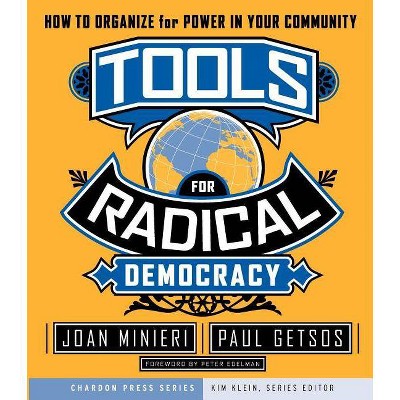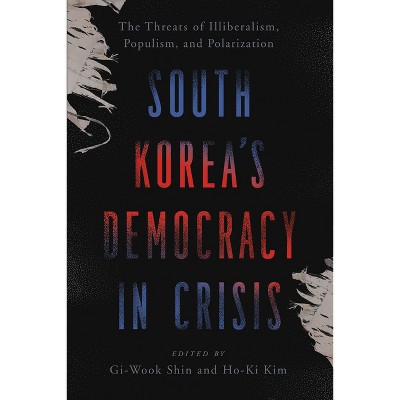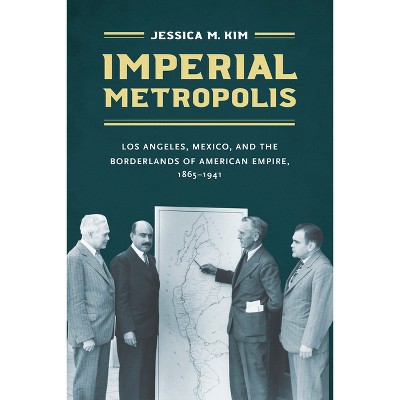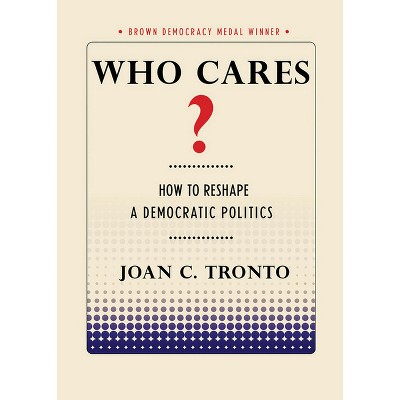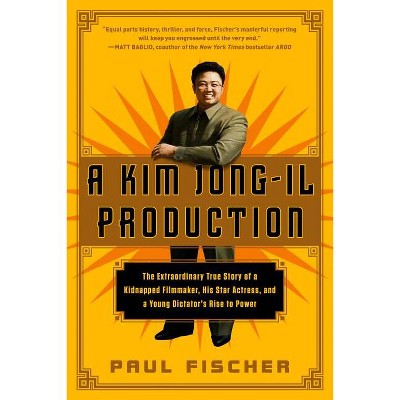$34.95 when purchased online
Target Online store #3991
About this item
Highlights
- A free ebook version of this title is available through Luminos, University of California Press's Open Access publishing program.
- About the Author: Hieyoon Kim is a scholar of dissident culture and media with a focus on Korea.
- 182 Pages
- Performing Arts, Film
Description
About the Book
"Korean filmmakers, distributors, and exhibitors reshaped cinema in radically empowering ways amid political turbulence from liberation through the decades of military rule (1945-1987). With acts ranging from making films that brought the dispossessed to the screen to bootlegging as an effort to redistribute resources under the state's control, they explored ideas and practices that expanded the definition of democracy and pushed the limits of the cinematic medium. Drawing on archival research, film analysis, and interviews, Hieyoon Kim shows how their work foregrounds a utopian vision of democracy in which the ruled could represent themselves and exercise their rights to access resources free from state suppression. As the first account of the history of film activism in post-1945 South Korea, Celluloid Democracy shows how Korean film workers during the Cold War reclaimed cinema as an ecology in which democratic discourses and practices could flourish"--Book Synopsis
A free ebook version of this title is available through Luminos, University of California Press's Open Access publishing program. Visit www.luminosoa.org to learn more. Celluloid Democracy tells the story of the Korean filmmakers, distributors, and exhibitors who reshaped cinema in radically empowering ways through the decades of authoritarian rule that followed Korea's liberation from Japanese occupation. Employing tactics that ranged from representing the dispossessed on the screen to redistributing state-controlled resources through bootlegging, these film workers explored ideas and practices that simultaneously challenged repressive rule and pushed the limits of the cinematic medium. Drawing on archival research, film analysis, and interviews, Hieyoon Kim examines how their work foregrounds a utopian vision of democracy where the ruled represent themselves and access resources free from state suppression. The first book to offer a history of film activism in post-1945 South Korea, Celluloid Democracy shows how Korean film workers during the Cold War reclaimed cinema as an ecology in which democratic discourses and practices could flourish.From the Back Cover
"Celluloid Democracy is brilliant; the scholarship is admirable. Hieyoon Kim has written an extraordinarily captivating account of the film workers, educators, intellectuals, and radical film activists in Cold War South Korea who dreamed of a better world and struggled to achieve democracy through cinema until the end of military rule in 1987. This remarkably readable and well-researched study deserves a wide audience."--Sangjoon Lee, author of Cinema and the Cultural Cold War: US Diplomacy and the Origins of the Asian Cinema Network "A fascinating and polished piece of scholarship written in clear and vivid prose. I don't know of any other book quite like this one. Moving away from the traditional focus on auteurs and film texts, Kim masterfully draws our attention to the critical yet often forgotten figures working on the margins of the postwar film scene, filling in some substantial gaps in our understanding of this period."--Christina Klein, author of Cold War Cosmopolitanism: Period Style in 1950s Korean Cinema "Through comprehensive and thoughtful analysis, this fascinating book explores the efforts of filmmakers to create, communicate, and realize alternative sociopolitical visions on-screen, shedding light on the collective sensibility and communal intelligence that have long sustained the progressive spirit of Korean cinema. With a keen eye for detail and a deep understanding of the subject matter, Kim weaves together a narrative that captures the essence of filmmakers' struggles to challenge dominant narratives and pave new paths in the cinematic landscape of Korea."--Jinsoo An, author of Parameters of Disavowal: Colonial Representation in South Korean CinemaReview Quotes
"Through her in-depth analysis of Korean film workers reclaiming cinema from authoritarian rule, Kim illuminates not only how activists and filmmakers consistently asserted their vision of a democratic, radical cinema distinct from Western film movements, but also how Cold War histories have perpetuated this archival absence. As a methodologically diverse history of Korean film and politics, Celluloid Democracy offers an innovative critical approach to postcolonial media history, reflecting on the violence and hegemony hidden in archival (in)visibility."-- "Film Quarterly"
"This book stands in solidarity with those who dream and fight to change the world."-- "Korea Journal"
"Celluloid Democracy is a groundbreaking work that expands the spectrum of Korean film history."-- "Journal of Asian Studies"
About the Author
Hieyoon Kim is a scholar of dissident culture and media with a focus on Korea. She teaches in the Department of East Asian Studies at Brown University.
Dimensions (Overall): 8.9 Inches (H) x 5.8 Inches (W) x .7 Inches (D)
Weight: .66 Pounds
Suggested Age: 22 Years and Up
Sub-Genre: Film
Genre: Performing Arts
Number of Pages: 182
Publisher: University of California Press
Theme: History & Criticism
Format: Paperback
Author: Hieyoon Kim
Language: English
Street Date: September 26, 2023
TCIN: 89005293
UPC: 9780520394377
Item Number (DPCI): 247-58-4533
Origin: Made in the USA or Imported
Shipping details
Estimated ship dimensions: 0.7 inches length x 5.8 inches width x 8.9 inches height
Estimated ship weight: 0.66 pounds
We regret that this item cannot be shipped to PO Boxes.
This item cannot be shipped to the following locations: American Samoa (see also separate entry under AS), Guam (see also separate entry under GU), Northern Mariana Islands, Puerto Rico (see also separate entry under PR), United States Minor Outlying Islands, Virgin Islands, U.S., APO/FPO
Return details
This item can be returned to any Target store or Target.com.
This item must be returned within 90 days of the date it was purchased in store, shipped, delivered by a Shipt shopper, or made ready for pickup.
See the return policy for complete information.







